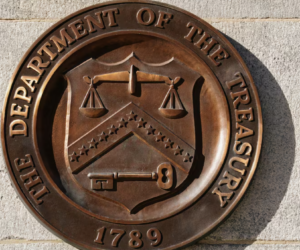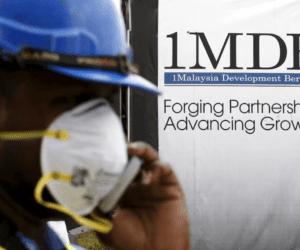Real estate has long been used by money launderers. Take the case of Teodoro Nguema Obiang Mangue. The son of Equatorial Guinea’s leader, apparently living a charmed life, would visit his luxury mansion on Paris’s chic Avenue Foch.
Worth more than 100 million euros, the building’s 101 rooms reportedly included a Turkish bath, nightclub and cinema, complete with gold and jewel-encrusted fixtures.
But in a blow to Obiang, French police seized the property in 2012 as part of a corruption and money laundering case. Last year, after a decade of legal battles, France’s highest appeal court upheld a guilty verdict for embezzlement and money laundering.
Obiang always denied any wrongdoing and continues to do so. However, the case remains a vivid example of how huge sums of money can be laundered in the real estate sector.
Every year illicit cash pours into luxurious penthouses and palatial mansions in major cities across the globe, as well as commercial and other real estate markets, but often few questions are asked.
The lust for a quick sale and a large commission can sometimes trump other considerations, including potential criminality.
The Financial Action Task Force (FATF) wants that to change.
Although real estate agents are supposed to know who they are doing business with and scrutinise risky transactions, FATF reports show that globally many do not have any customer due diligence or reporting obligations.
Even if they do, most do not understand or follow them. This cannot be business as usual.
The real estate sector needs to critically assess its vulnerabilities to illicit finance and transform the way it deals with the risks.
For the past two months, the FATF has held a public consultation on money laundering and terrorist financing risks in real estate.
A full report on the topic is due to be published in the summer but the key to tackling the issue can already be summed up: those working in real estate who are part of the problem need to become part of the solution.
It is no secret what happens. Criminal gangs, corrupt officials, drug traffickers and kleptocrats use property to launder their ill-gotten gains, often through the use of anonymous shell companies.
By simply buying an apartment, criminals can appear to legitimise huge sums in a single transaction.
The combination of rising prices, investment opportunities, sometimes complex transactions and little oversight is an appealing mix. Dirty money flows into property through a variety of methods.
Launderers can filter cash through an all-cash transaction, mingle illicit proceeds with a mortgage, use third parties, or just buy and resell quickly.
Countries with large or appealing real estate markets, including FATF members, are often viewed as good laundering destinations, partly due to the lure of well-regulated financial systems and complicit or unwitting enablers, including the real estate sector.
So what needs to change? First, real estate agents need to understand the risks. The FATF does not expect a zero tolerance approach but it does expect a risk-based approach.
This means understanding how money launderers and other criminals can exploit the sector.
It is not good for any business’s reputation to be associated with criminals and money laundering.
Secondly, risk mitigation. Agents really need to know their clients.
Where do they work? Where do they come from? What is their source of income and wealth? If you fail to get satisfactory answers or suspect criminality, then do not be complicit in supporting serious crime and terrorism.
Some red flags include a higher or lower than expected sales price, excessive emphasis on anonymity, unwillingness to provide answers, buying remotely without valid reasons, and the use of complex business structures and schemes to hide the real buyer.
Thirdly, file suspicious transaction reports. At the moment, it is the exception rather than the norm. It is rare for real estate agents to act on suspicious behaviour despite overwhelming evidence of the sector being used to launder illicit funds.
In fact, many countries do not require agents to file reports even if they handle large sums, including cash, from high-risk jurisdictions. This, again, needs to change.
It is important to understand that filing a report is not the same as reporting a crime. There is no judgement about the person or the transaction.
It is simply sharing information with your financial intelligence units and law enforcement, to allow them to make a decision about what is really going on.
As most real estate purchases are a one-off transaction, if the right checks are not carried out and red flags missed, then it is less likely for the illicit nature of the transaction to be discovered.
Do not assume that just because a payment is going through the banking system, it is someone else’s responsibility to report it. We all operate as part of the global financial system, and it is only as strong as its weakest link.
Ultimately, do not turn a blind eye. Money laundering fuels serious crime and terrorism, fosters corruption and harms fair and balanced economic growth.
The role of real estate agents, as gatekeepers to the financial system, is crucial. I urge countries and the sector to wake up to these very serious issues that have been neglected or conveniently overlooked for too long.
By working together, we can make a difference.









